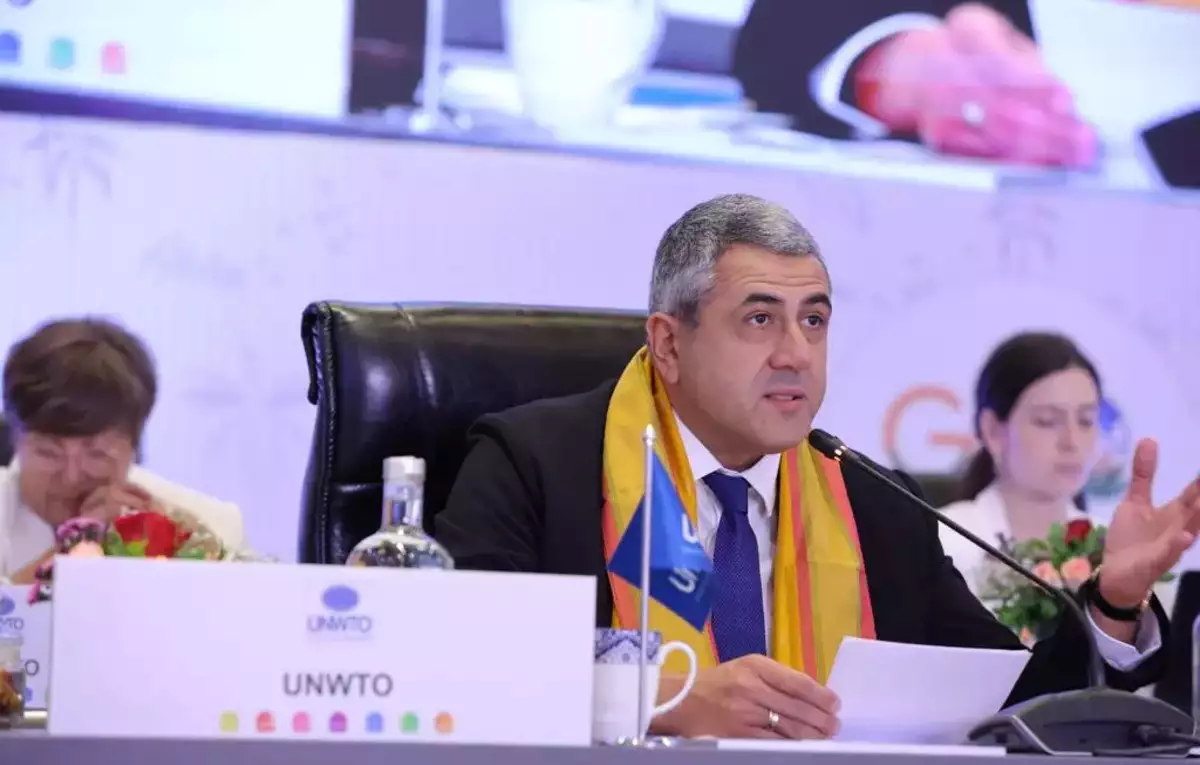UNWTO has developed with the G20 economies a roadmap for making tourism a central pillar of the 2030 Agenda for Sustainable Development.
As the knowledge partner of India’s G20 Presidency, UNWTO delivered the Goa Roadmap for Tourism as a Vehicle for Achieving the Sustainable Development Goals at the meeting of the Ministers of Tourism of the world’s leading economies.
A roadmap for people and planet
Halfway between the 2015 launch of the 2030 Agenda and the deadline to accomplish it, UNWTO called on G20 tourism ministers to lead the sector’s contribution to accelerating progress towards achieving the 17 SDGs. The Goa Roadmap, developed with the Tourism Working Group, builds upon the five priority areas under India’s G20 Presidency:
* The Goa Roadmap for Tourism as a Vehicle for Achieving the SDGs offers the G20 economies a proposed plan of action to lead the way forward towards a better future for all.
* Green Tourism: Recognising the critical need to work towards climate action and environmental protection and related international cooperation, the Goa Roadmap incorporates recommended actions and good practices from G20 economies and guest countries on issues such as financing, sustainable infrastructure and resource management, integrating circular approaches in the tourism value chain and engaging visitors as key actors in sustainability.
* Digitalization: The roadmap makes clear the wide-ranging benefits of supporting businesses and destinations embrace digitalization, including enhanced productivity, improved infrastructure management and delivering a safer and more efficient visitor experience.
* Skills: Reflecting one of UNWTO’s core priorities for the sector, the Roadmap emphasizes the need to provide tourism workers, particularly youth and women, with the skills employers need, to future-proof tourism jobs and to make the sector a more attractive career path.
* Tourism MSMEs: With Micro, Small and Medium Enterprises (MSMEs) accounting for 80 per cent of all tourism businesses worldwide, the Roadmap emphasizes the importance of public policies and public-private partnerships in addressing key challenges, including financing, marketing and skills gaps and market access to support MSMEs through the digital and sustainable transitions.
* Destination Management: The roadmap presents a set of proposed actions to create a holistic approach to destination management that strengthens public-private-community partnerships and enhances a whole of government approach. It further shares examples of innovative programmes among G20 and invited countries.
UNWTO Secretary-General Zurab Pololikashvili said: “As tourism bounces back close to pre-pandemic levels, we must ensure that recovery is sustainable, inclusive and resilient. The Goa Roadmap for Tourism as a Vehicle for Achieving the SDGs offers the G20 economies a proposed plan of action to lead the way forward towards a better future for all.”
G Kishan Reddy, Minister of Tourism, Culture and Development of North Eastern Region, Government of India, added: “Tourism can be instrumental in addressing many of the challenges faced by our societies while transforming itself to address its socio-economic impacts. Working together on a common roadmap for recovery and long-term sustainability will unlock its immense potential to deliver on the SDGs.”
Reducing waste and increasing circularity
On the occasion, UNWTO and the UN Environment Programme hosted the side event “Towards a circular economy of plastics in tourism – the Global Tourism Plastics Initiative”, in association with the Ministry of Tourism of India.
The Global Tourism Plastics Initiative provides a common vision for a circular economy of plastics in tourism. The side-event provided delegates and participants with practical guidance to address plastic pollution in tourism operations.
Participants included country representatives (India, Indonesia), accommodation (ITC Hotels, Leela Palaces Hotels & Resorts, The Indian Hotels Company Limited) and aviation (International Air Transport Association, IATA).
The Central Nodal Agency for Sustainable Tourism of India, a technical agency of the Ministry of Tourism, became a signatory of the Global Tourism Plastics Initiative, together with the Government of Punjab and the Responsible Tourism Society of India.
UNWTO, tourism and the G20
The G20 economies represent around 85 per cent of the global GDP, over 75 per cent of the global trade, and about two-thirds of the world population.
In 2022, the G20 welcomed 74 per cent of international tourists and per cent of tourism exports worldwide. In 2019, pre COVID-19 pandemic the Tourism Direct GDP reached 3.7 per cent of the G20 economies.


